I browsed the web but I couldn't find an answer to my question...
Lets say I have 3 chains. I want the request to pass all 3 chains (it doesn't matter if the chain can handle the request or not). Is it possible to use CoR pattern for this problem?
To explain it better - I have a list that has to pass through several sets of rules. If it passes the 1st rule, list stays the same. Then it goes on to the 2nd rule, and 2nd rule changes a list. The changed list goes to the 3rd rule, it passes and the altered list is saved.
